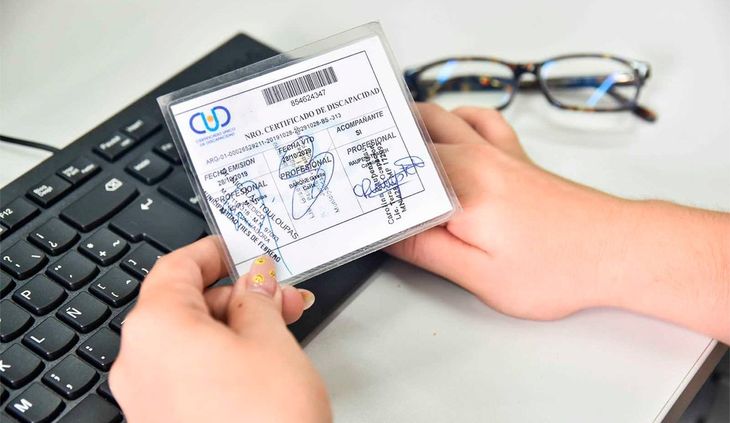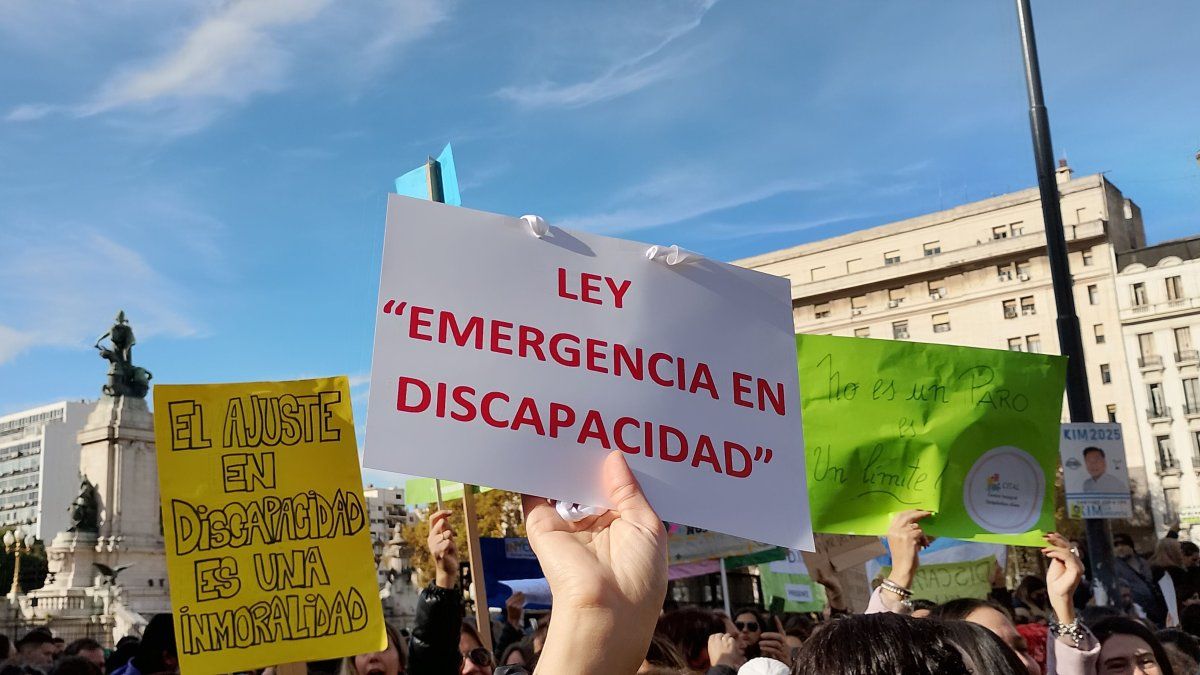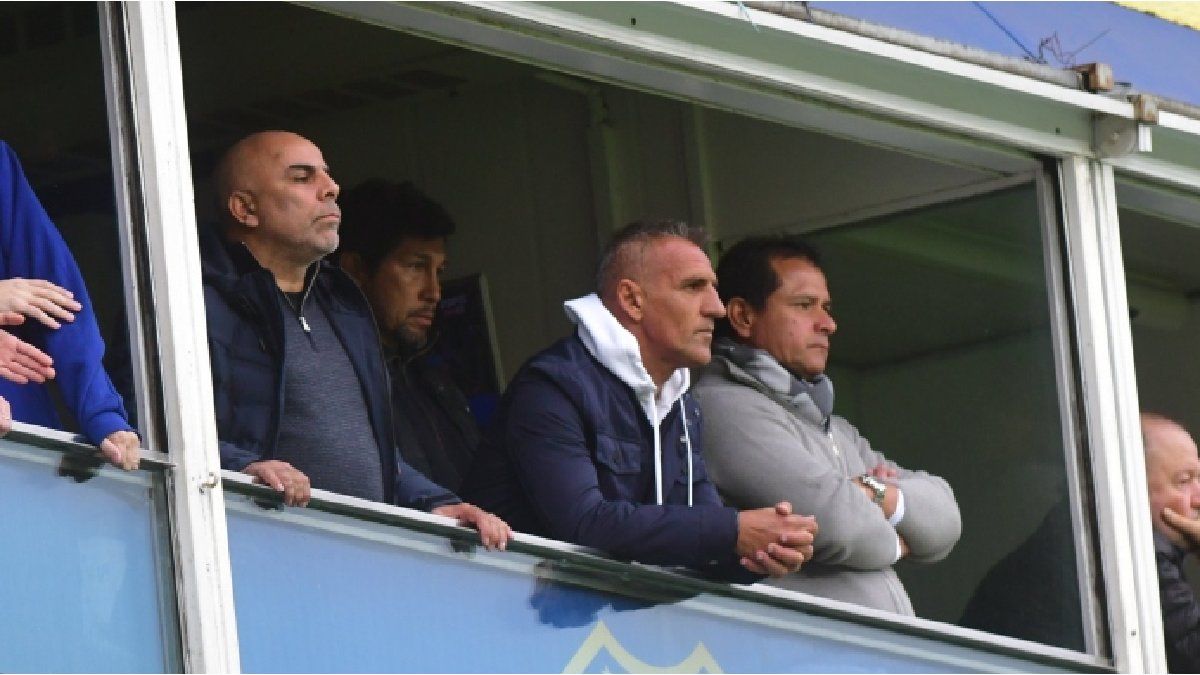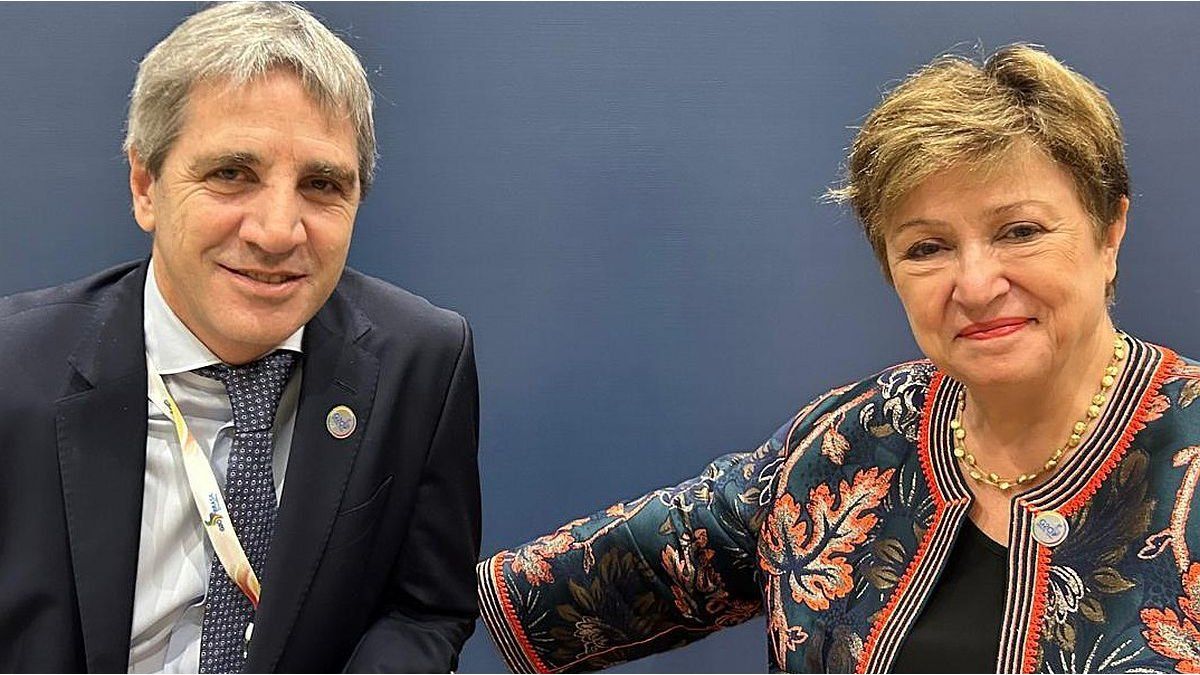Disability, benefits and pocket: the dilemma of those who suffer from them
The activist Daniela Aza states that “Having disabilities is very expensive, society generally does not pay attention to this and does not economically facilitate certain aspects. ” In that line, he added that “having a member with disabilities in the family always represents An important economic disruption either from the Treatment, medications, surgeries, medical coverage and even mobility. “
Among the parallel activities and resources that require economic investment “appear the Extra sport or rehabilitation: “The supports and adaptations that are not covered (For the bathroom, wheelchair, crutches, etc.), “he added.
For his part, the lawyer and specialist San Martín reiterated that the national nomenclator for disability benefits is not updated and this leads to a “progressive degradation of the service” translated into the reduction in the number of sessions or “loss of quality in care.”
This nomenclator -of the Tariffs of the Single Basic Benefits System for People with Disabilities– It consists of a catalog of medical services and treatments with the mandatory figure to be reintegrated for each benefit provided.
Its update arises from a resolution, the result of a meeting between the board of the National Disability Agency (Andis) and two representatives of the providers.
Embed – @discarecho on Instagram: “What is the nomenclator? The national nomenclator of medical benefits consists of a catalog of names of medical techniques for the treatment of a disease, condition or pathology. This catalog also includes other issues that individualize and value a medical benefit. Where does the nomencler arise? And social action in 1999 where the nomenclator approves, gives it a regulatory framework and fixes values for different health benefits. Home and therapeutic companion, in these exceptional cases in which the benefit is justified according to medical criteria, proceeds by exception to cover them. Decade of the nineties, when there was a great advance in the issue of rehabilitation approach and other benefits through Law 24,901 Simple integral.
Thus, the lawyer said that to sustain an adequate level of benefits, “many families must face in particular a series of significant monthly expenses”, among which can be listed:
- Therapeutic sessions: With a minimum addition of $ 10,000 for each session.
- Therapeutic companion: an approximate monthly expense of $ 300,000.
- Transport: In his words, “many services no longer include transfers” so families must pay between $ 15,000 and $ 20,000 daily for each tour (towards schools, day centers, among others).
- Medication in intensive treatments, which ranges from $ 200,000 and $ 400,000 per month.
- Diapers: Depending on the size and sphincter control, the minimum expenditure is $ 100,000 per month.
- Feeding: special schools and day centers request that families provide daily foodas an additional expense “difficult to quantify precisely.”
Thus, to sustain “the quality and quantity of services”, the monthly spending would exceed one million pesos. Under these data, two basic issues arise and at the same time, says Cambareri: Access to health and work. “It seems obvious, but it is something that much of society ignores,” he said.
The Law 24,901 of Basic Benefits System establishes in its article 2 that “social works will be in charge with a mandatory basis, the Total coverage of the basic benefits enunciated in this law “for people with disabilities affiliated with them.
Disability Deputies.jpg
Law 24,901 establishes that social works should necessarily cover the basic benefits for disability affiliates.
But according to the young woman, “many times They refuse to cover them And families have to resort to justice. “Relating to the current context, people run the” risk of their treatments being cut off given the lack of payment and miserable salaries “of health professionals.
Another edge is the labor market “It is confirmed that more than 80% of people with economically active age disabilities have no job. How can we think about Economic independence If people with disabilities do not have a job? “Asked the activist who explained that he lives with his parents, both retirees.
In that line, he referred to inclusion in organizations and Quota Law No. 22,431which establishes that in the State personnel there must be 4% of the personnel with a disability.
“No government since that law was implemented complied with the quota. The occupation does not even reach 2%. Private companies if they hire people with disabilities enjoy tax benefitsbut they don’t even hire us what will happen when the people who keep us are no longer? “He said.
Public policies in disability and pending accounts
In the sense of adapting the life experience of people with disabilities, Cambareri argues that “it is necessary and urgent that the State updated the Basic Benefit Nomenclator“In the face of providers win” the salary that corresponds “without worrying” if they are going to collect the month or not. “
“There is necessary that there are A commitment to work to guarantee The accessibility “stressed the activist and exemplified with public transport:” It cannot be that there are still trains stations with common stairs, without elevator and without mechanical stairs. “
As for the work quota, he suggested the idea of fine entities that do not incorporate personnel with a disability or encourage training within organizations. “When their pocket is touched there, they begin to act. The State should implement Training In schools, hospitals, companies and own organizations, “he reflected.
He also pointed out that “contrary to what is believed, most disabilities do not happen by birth, but They are acquired in the course of life, therefore, no one is exempt from crossing it “.
Unique Disability Certificate.jpg

“It is necessary that there be a commitment to work to guarantee accessibility,” they emphasize.
On the other hand, the lawyer also considers that “an urgent and priority measure would be the Promulgation of the Emergency Law in Disabilitythat would allow to address this crisis with concrete tools and greater agility. “In that line, he declared that it is” fundamental “to go in the following address:
- Review existing audits “to guarantee their transparency and objectivity.”
- Promote the creation of “provincial institutions specialized in each district”, to work together with schools and combining health and disability approaches.
- Update and adapt the amounts of pensions and nomenclator tariffs.
- Strengthen the “control mechanisms of Superintendence of Health Services“, guaranteeing that social and prepaid works comply with their legal obligations.
“These measures, applied in a coordinated way, could mold A more just, accessible and dignified life experience“said the lawyer on the project that is in the Senate. The speaker AZA believes that from the State you can generate initiatives to facilitate the economic life of families as “Guarantee treatments and therapies through social programs and duly assigned benefits”.
Another point that he pointed out could be “economic compensation to those who provide equipment and adaptations to reduce costs and thus make it more accessible.”
Complaints, amparo resources and the role of justice
Some of the most frequent injustice situations include the “early pension suspension” and according to San Martín, the problem is that “the beneficiaries receive document letters to submit to audits, but they have already been suspended payment before said evaluation is completed.”
Another is the denial of medical benefits indicated: “Many social works are unaware of health professionals And they decide internally –without clinical or therapeutic criteria- What benefits they will cover, violating the provisions of laws, “said the lawyer.
In that sense, “the most effective resource is Amparo actionespecially before the inefficiency or disarticulation of the administrative route before the Superintendency “.
The hiring of a private lawyer for these cases is not necessarysince “judicial departments have specific areas where these types of procedures are carried out for free,” he said. The amparo is “a solid legal tool, which allows litigating in more equitable conditions,” said San Martín.
For his part, Cambareri argued that sometimes Justice fails in favor of families “in a timely manner” but in others “arrives late or responds to the interests of large corporations.” “The life of a person with disabilities translates into a constant strugglesociety wants us tired to stop fighting and claim what corresponds to us, but that will not happen, “the young woman concluded.
Source: Ambito




